Free learning resources
Are you looking for free learning resources to help your child excel at school or to nurture a love of learning? You’ve come to the right place.
Showing 232 of 232 resources
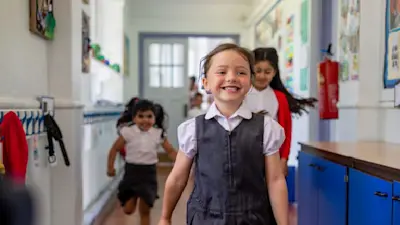
How to appeal primary school places 2025: step-by-step guide
A guide to guide to primary school place appeals.

How to create the best environment for online learning
Learn how to make the best environment for online learning!

How online tuition can boost confidence and participation
How does online tuition boost confidence and participation?
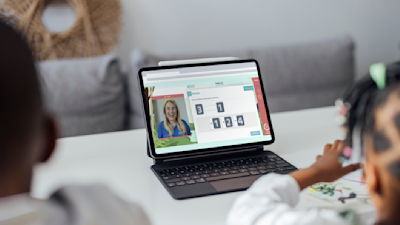
How personalised 1:1 online tuition can benefit your child
Learn more about how online tuition can help your child.

How online tuition can help prepare for the 11 Plus exam
Learn how online tuition can be an 11 Plus prep game changer

GCSE Reading List
Inspire a love of reading with our GCSE reading list.

What career might your child pursue in 2045?
Find out what careers we think your child might pursue!

Private school fee taxation and the education landscape
Will the changes affect you?

What to consider when looking for tuition for your child
Discover the 9 things you need to ask!

AI tools for schools – where can they have the most impact?
How we've harnessed technology to have an impact on learning

Speech and language development for lockdown babies
How has the pandemic affected children's development?

Supporting your child on their SATs journey

8 tips for getting children back into a school routine
Get your child back to school ready with our 8 top tips!
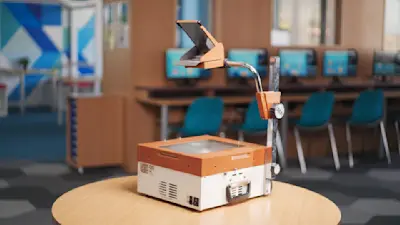
Back to School Rewind: Kids React to Old Classroom Tech

Maternity and paternity leave

IGCSE vs GCSE: What are the differences?
Learn about what differentiates GCSE and IGCSE tuition

How many GCSEs do you need for university?
What you need to know about GCSEs and university.

How to get into grammar school: a quick guide
Our tips on how to get your child into a grammar school.
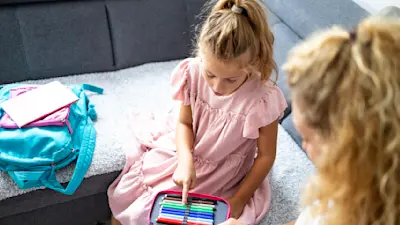
Our top 10 back-to-school pencil case picks
Get kids excited for back to school with a new pencil case!

Top 5 benefits of tuition for the 11 Plus
The benefits of 11 Plus tuition go beyond the exam!

How to talk to your child about discrimination
Tips on how to talk to your child about discrimination.

Having difficult conversations with children
Tips to take the challenge out of difficult conversations.

Managing stages of childhood: preparing for college
Help your child prepare for college and A-levels!

Managing stages of childhood: facts about adolescence
A quick guide to managing the ups and downs of adolescence.

The ultimate guide to starting a new school
Everything you need to know about starting a new school!
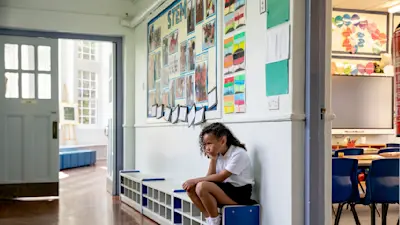
My child doesn't want to go to school, what can I do?
Let's learn how to help your child enjoy school again

Motivation to do maths: how to help children
Struggling to motivate your child with maths?

How to remember revision - our expert tips!
Top tips to help revision sink in so you can ace your exams!
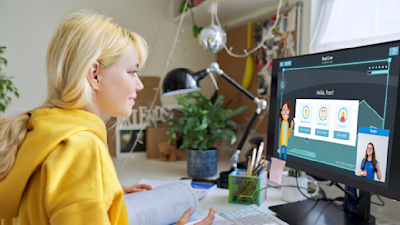
Screen time and technology: the benefits for education
What are the benefits of screen time for education?

What is a Pomodoro Timer and does it work?
Learn more about the Pomodoro Timer method for studying.

How to start homeschooling: a starting guide
A quick guide on how to start homeschooling.

How to move schools: tips and advice
Some quick tips and advice on how to move schools.

Fun ways to help your child with exam revision
Unlock the joy of revision!

The ultimate guide to helping with homework
Our handy guide on how to help with homework.

How to stay safe online: a guide for kids and parents
Our quick tips on teaching kids how to stay safe online.

Childcare costs vs tuition: an educational investment
Weighing up the cost of tuition vs childcare? Read on.

Can you retake GCSEs?
Know your options when it comes to retaking GCSEs
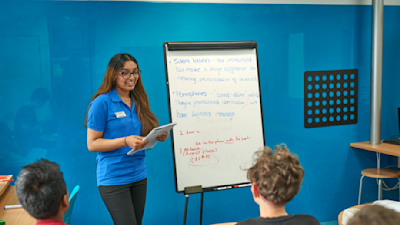
11 Plus practice papers
Start your 11 Plus exam revision with our 11 Plus papers.

How to perfect your exam technique
Everything you need to know about developing exam technique!
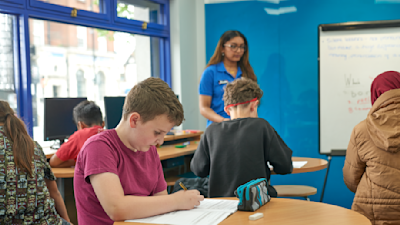
Essential 11 Plus exam equipment
Help your child succeed in the 11 Plus with the right tools!

The complete SATs exam equipment list
Learn what your child needs for their SATs exams

The ultimate GCSE exam equipment list
The tools your child needs to succeed in their GCSE exams

Why making mistakes is good for learning
Learn why making mistakes can be the best way to learn!

Parenting red flags: spotting the signs of bullying
Know how to spot the signs of bullying

Spark imagination with educational movies and documentaries
From dinosaurs to discovery!

Fun ways to keep on learning during the Easter holidays
Let learning be fun this Easter!

World Book Day: celebrating a love of reading
Everything you need to know about World Book Day!

Navigating the digital playground: a guide to social media
Understand how to help children use social media safely

Learning resources for children with autism
Support children with autism with our learning resources

Learning resources for children with dyslexia
Support children with dyslexia with our learning resources

Learning resources for children with SEN
Help children with SEN using our learning resources

Children’s Mental Health Week
Learn about the importance of Children's Mental Health Week!

Supporting your child who has failed their GCSE exams
How to support your child if they fail their GCSE exams

Supporting your child who has failed their 11 Plus exams
How to support your child if they fail the 11 Plus

Supporting your child who struggled in their SATs exams
How to support your child if they struggled in SATs exams
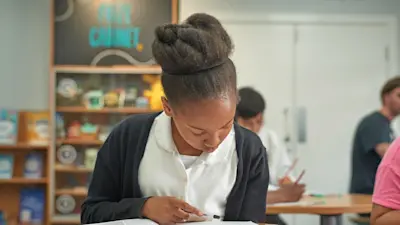
Supporting gifted and talented children in education
How to support gifted and talented children in education

Making friends at a new school
Tips to help your child make friends at a new school

Teaching time management to children
Tips for teaching children about time management
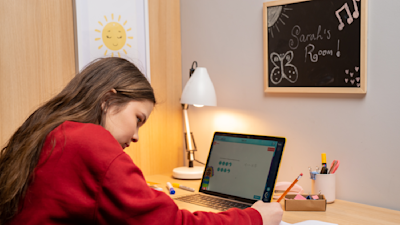
Developing vital revision skills
Learn about the vital revision skills children need.

Healthy eating, good nutrition and learning
Explore the link between nutrition and learning.

Studying for too long: does it affect children’s wellbeing?
Can studying for too long impact your child's wellbeing?

The benefits of screen time for children
Learn about the benefits of screen time for children

Preparing for the new school year
All the tips you need to prepare for the new school year

Free online resources for homeschooling
Learn more about free online resource for homeschooling

Tools and apps for homeschooling
Our picks for the top homeschools apps and tools.

Anti-Bullying Week 2024
Celebrate Anti-Bullying Week with us!

Parent’s back to school questions answered!
All of your back to school questions answered!

Understanding cyberbullying facts and statistics
The facts and statistics we've gathered about cyberbullying.

Year 7 preparation: transition to secondary school resources
Transition to secondary school resources to help your child

Preparing for the transition from Year 2 to Year 3
Prepare your child for the transition from Year 2 to Year 3

Transition from Reception to Year 1
Tips for the transition from Reception to Year 1

World Mental Health Day
Learn more about World Mental Health Day!

Dyslexia Awareness Week
Our commitment to children learning with dyslexia.

Top tips for stress-free back to school shopping
All the tips you need for back to school shopping.

Life after GCSE: What to do?
Learn more about the options for students after GCSE.

The back to school stationery supplies guide
Take a look at our essential back to school supplies guide!

When do kids go back to school?
All you need to know about the timing of back to school!

Back to school advice and tips for parents

Your back to school checklist

Children's healthy lunchbox and snacks ideas
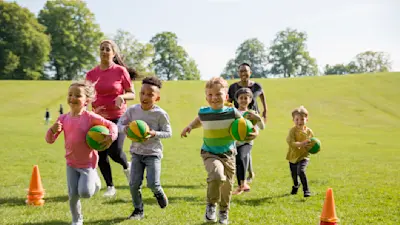
Create the ultimate obstacle course

Healthy and fun picnic ideas

Garden games: a perfect antidote to too much screen!

Free summer holiday activities for families

Transition from primary to secondary school
Tips to support your child's transition to secondary school
Recommended Reading List for children in Year 1
Animal Crossword
Can you discover which animals are hiding in this activity?

Your guide to Special Educational Needs (SEN)
How to help your child with Special Educational Needs
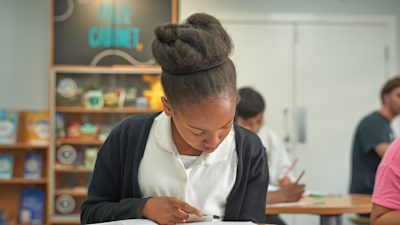
VARK learning styles: useful or ineffective teaching?

The importance of STEM learning

A guide to kinaesthetic learning
Does your child prefer to learn through physical activity?

The benefits of video learning

How to deal with exam stress
Is your child struggling with exam stress?

Exam results stress: a student's guide

The benefits of STEM toys for young children
STEM toys can be a fun way to build your child's confidence.
Creating dilemmas
Creating Settings
Graphs - GCSE

GCSE algebra practice and questions
Creating Characters
Times Tables
Area and Perimeter

Chris McGovern: Effects of summer learning loss
Are the summer holidays too long?

5 ways you’ll see progress in our parents’ meetings
How to check the progress of your child at Explore

Love learning this half term
How to keep your childs brain active over half term
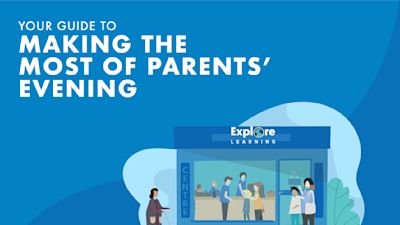
Your parents' evening guide
Make the most out of parents' evening with our easy guide!

Best children's books about mental health
Find out which books made the list.

How to avoid summer maths loss
Don't lose all of their school progress over the summer.

At home learning activities sorted
Fun and easy home learning activities to try.

Becoming a learning enthusiast with Steve Backshall
Wondering how to become a learning enthusiast?

Reading at home - tips and tricks
Boost literacy levels at school by reading at home.

How to make the most of parents’ evening
How do you fit everything into such a short meeting?

Making the most of it: what to do in the summer term
There's still lots of time for learning left.
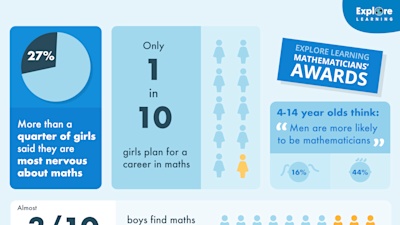
Be braver with maths
Find out who's more nervous about maths, boys or girls...

GCSE preparation and how to start revising
We've pulled together some tips from our expert tutors.

Learning in action: Travel hot spots
Chirag Golwala shows us how your child can learn in action.

The benefits of helping and learning at home
Tips and tricks to engage your child in learning at home.

Testing times - Did parents pass our 11 Plus quiz?
We challenged parents with an 11 plus quiz, how did they do?

10 back to school thoughts from children
How do children feel about returning to school?

It's time to seize the summer!
Learning and fun over the holidays.

Is it ok to be bad at maths?
PISA rankings show that the UK came 27th in maths.
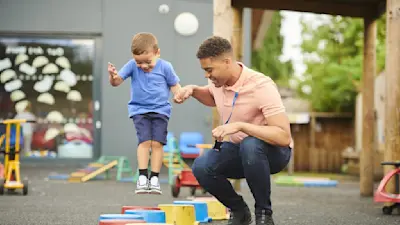
Raring to go for reception: Teacher Tips

SEND: We're in this together
A tailored approach is the key to success for every child.
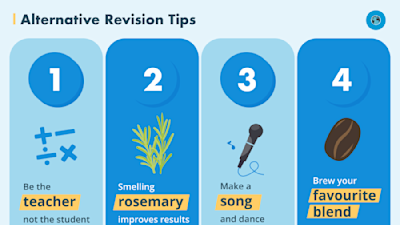
Alternative revision tips for exam success
There’s more to revising than cue cards and highlighters!

11 Plus comprehension tips
Read on for a handy guide for the 11+ comprehension tests

7 benefits of a library
It’s time to get to your local library!

Creative writing ideas and topics for summer
Get stuck into descriptive summer writing!

Year 1 Phonics Screening Check explained
All you need to know about the Phonics Screening Check

Summer activities for kids
Discover what’s happening across the UK this summer.

11 Plus Exam Preparation - When to start
Not sure when to start 11 Plus preparation for your child?

The definitive guide to GCSE Results Day 2025
How to guide for GCSE exams and results day for your family

Primary and secondary school reading lists
Our favourite books to help children learn to love reading

Get set for secondary school
Helpful advice for stepping up to secondary school

Best Educational Apps

Year 2 KS1 and Year 6 KS2 SATs scores explained
Answering your SATs results queries.

Do You Need A Tutor For 11 Plus?
Is tutoring beneficial for the 11+? Read on to find out

Online Tutoring: supporting your child’s learning at home
How can I support for my child at home? Read on

A fearless approach to the SATs
How to have a fearless approach to the SAT's with your child

Guide to handwriting styles
The benefits of teaching joined-up handwriting in school.

Exam tuition can and should be for all, not just the wealthy
Is it just the wealthy that have access to this service?

Essential guide to revision techniques
Discover our top tips, techniques and methods.

How to make a GCSE revision timetable planner
Check out our top tips and revision timetable template.

Level up! The keys to transitioning to a new school year
What are the keys to transitioning to a new school year?

Q&A with Kjartan Poskitt
Find out more about his love of maths...

How to write a CV for a summer job
Find some helpful tips for writing a CV for a summer job.

A quick guide to SATs – What to expect from KS1 and KS2
What to expect if your child is sitting KS1/KS2 SAT's

Making your child’s reception year count
How to make your child’s reception year count…

The ultimate first day of school guide
Ensure they have the best start at their first day of school

SATs paper revision guide for Year 2 and Year 6
Getting ready for SAT's? Read on for a handy revision guide

Keep brains active this December
Keep your children engaged with learning this December.

Are you as smart as a 12 year old?
Do this fun quiz to find out!

Plants For Schools and Learning
The best plants for a positive learning environment.

11 Plus registration guide 2025-2026
Preparing your child for secondary school.

A parent's guide to Key Stage 2 learning & tuition
Find out what to expect in KS2 and how you can help

Best GCSE maths revision apps and websites
Find the best GCSE maths apps to support your revision!

Advice on keeping your Head Above the Waves
How to support your childs wellbeing during hard times

Making the most of the summer
Summer activity ideas and much more.

Maths GCSE exam boards explained
AQA vs Edexcel - what's the difference?

Private tutoring: the true value
Read on to help your child develop lifelong learning habits

What skills does my child need for the 11 Plus?
Let’s find out which 11 Plus skills are needed to excel...
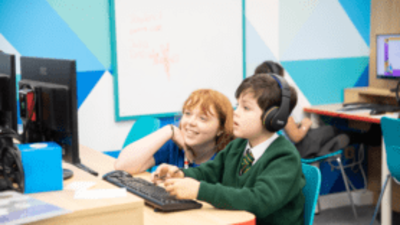
What’s the difference between a teacher and a tutor?
Teaching and tutoring are more different than you think

How to support your child with exam preparation
How to help your child prepare for exams

The importance of reception class - all you need to know
Is reception important to your childs education? Read on

Reading for pleasure and why it’s important for kids
How to inspire your child to read for fun

A working parent’s guide to the summer holidays
Make the most of summer with your child as a working parent

Recognising and celebrating diversity as a family
Redow to recognise and celebrate diversity with your family.

Is tutoring worth it? Calculating money, effort & success
Read ahead to find out if tutoring works for your family

How to support your 4 year old to develop number sense
How to support early learning by developing number sense

Q&A with author and presenter, Steve Backshall!

A teacher’s guide to parents’ evening: questions & tips
First parent's evening? Read on for a handy guide
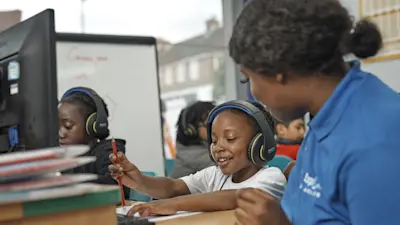
How to become a times tables master
Want to be a times tables master? Read on to find out how

Practical learning activities at home
Want a great way to learn at home whilst having fun? Read on
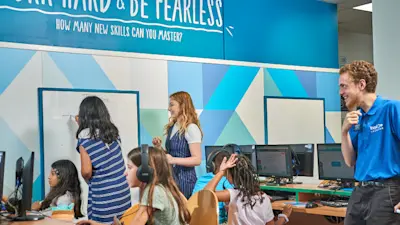
How to read school reports: A parent survival guide
Discover everything you need to know about school reports
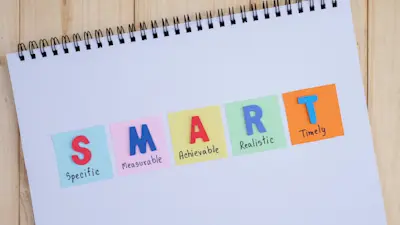
SMART target setting template: New year, new goals
Ensure success by trying SMART target setting

A guide all about GCSE maths
If you're looking for GCSE Maths help, look no further

“Help! My child won’t sit still” – How ADHD affects learning
How does ADHD affect learning and how can you help

Online home tuition vs tuition centre: Which is better?
Compare online tuition vs in-person tuition centres to help

8 Fun Ways to Maintain Studying During the Summer Holidays
The summer break is here but is there something to learn?

When is SATs week 2024 and SATs stress relief activities
Let’s help your children thrive this SATs week

11 Plus vocabulary and spelling list
Find out how to help with our 11 Plus vocabulary guide

Things to learn in summer: try ‘accidentally’ learning!
How to 'accidentally' learn this summer

Tips for Young Writers and Authors from David Walliams
Here are David Walliams’ top ten writing tips for authors

Begin your 11 Plus journey with support from experts
Where to start with your 11 Plus journey
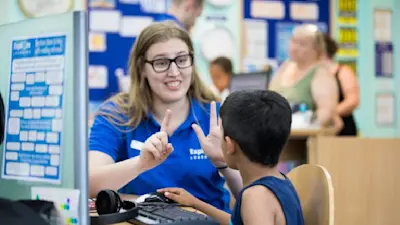
How to find a maths tutor for your child
A maths tutor can bring a world of benefits for your child.

Adapting to different learning needs
How to adapt to the different needs of a child

Coping skills for stressed parents
How to cope as a parent when you're feeling stressed

The benefits of after school activities
How after school activities can benefit your child

How to tackle Year 2 and Year 6 SATs papers
A handy guide for all things SAT's papers

Maths matters: Interview with Bobby Seagull
We caught up with Bobby on why he loves maths.

10 questions with David Walliams
Read our Q&A with David here.
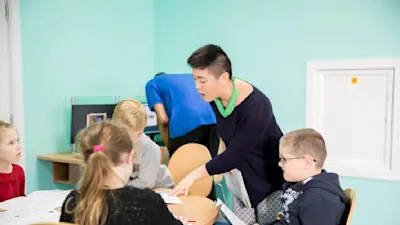
Help your child succeed in their 11 Plus exams
Find out more about how our expert tutors can support you.

What are 11 Plus Tuition classes like?

Coping with your child's back to school anxiety
How to support your child with separation anxiety

What qualities make a good tutor?
Wondering how to choose the right tutor for your child?
What is the 11 Plus?
Are you unsure what the 11 Plus exam is?

Preparing children for the future
How to prepare your children for the future

Your role in child development milestones

Guide to primary school places: Application, dates & appeals
How to select the right primary school for your family

Common English Mistakes and How to Learn From Them
How to learn from common English mistakes

Supporting your child through the summer holidays

Getting your child ready for year 1 learning
How to prepare your child for KS1

Does your child need a GCSE Tutor?
How to help your child with GCSE's by getting a tutor

A teacher’s tips for home schooling Reception children
How to home school reception children well

Keep education going – how to educate your child at home
How to educate your child at home during school closures

Time to tutor? When to get a tutor for your child
Not sure when to get a tutor for your child? Read on

When to start GCSE preparation?
Start thinking about your maths exams

Exploring the SATs journey so far
Learn more about SATs tests and how they've changed.
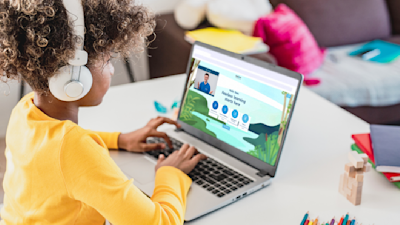
Explore the benefits of online learning
Is online tuition effective? Read on to find out more

The best mental health activities for kids
How to help your child have good mental health habits

How parents can help with writing at home
How to encourage writing for fun at home

Getting Started With Revision
How to revise efficiently for success

The rise of home schooling UK: Advice for parents
Are you considering home-school? Read on

Single parent holidays: make the most of the summer 2024
How to navigate the 6 weeks off as a single parent.

Preparing for tests: top 10 tips
How to help your child prepare for tests

Summer screen time limits for kids and teens
How to make the most of summer this year

How do I help set goals for my child this school year?
How to set goals for your child at school

How To Deal With Cyberbullying As A Parent Or Carer

Dealing with GCSE stress and anxiety
Read on to learn how to cope with GCSE anxiety

Autism and learning- Supporting children with autism
Read on to learn more about Autism Awareness Month

How pupils can pass the 11 Plus
We're here to bust the myths around passing the 11 Plus!

Recommended home-learning resources: Expert picks

Mentor vs tutor: What’s the difference?

Wellbeing Tips: Self care for children

Are SATs compulsory in the UK? Facts and myths

Top tips for engaging reluctant readers

Fitting a tutor around a busy life

Summer reading lists and tips for kids

Everyday Maths Activities For Children Real Life Learning

October Half Term Events
It’s time for some autumnal family fun!

Positive parenting techniques
Tensions running high in your household? You’re not alone.

Let's get talking in Early Years
One of the best ways to get children talking is through play

Best educational gifts for children: the gift of learning
Want to buy something long-lasting for your children?




